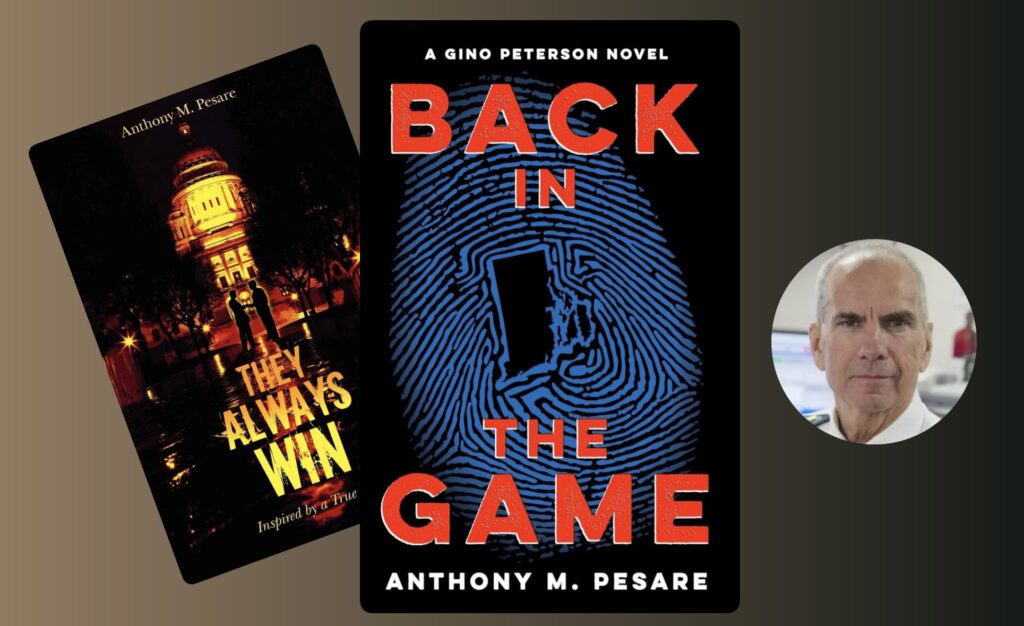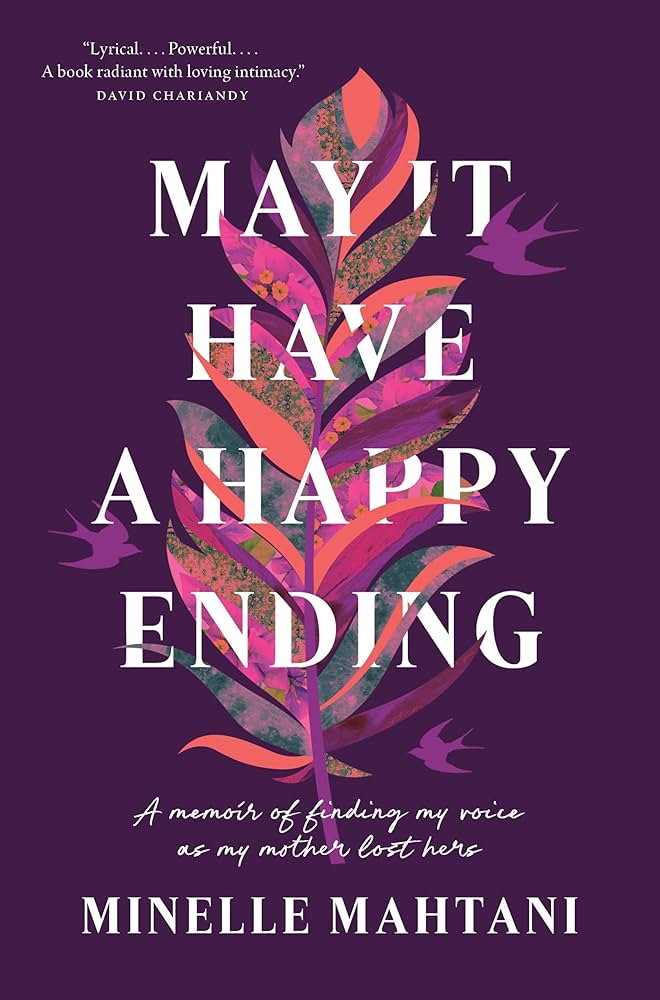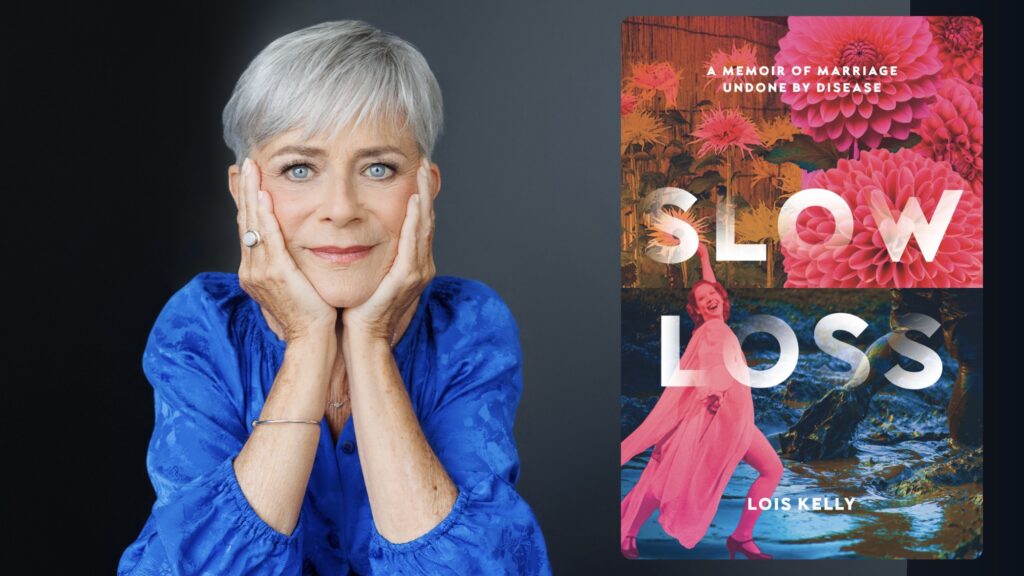We’ve left it open for you, so you don’t even need one of those little keys. Because writing is life, and keeping it real means forgoing the line between the personal and the professional.
Clients Crushin’ It: Tony Pesare
Madison Utley speaks to Tony Pesare following the December release of his second book, Back in the Game. The two discuss how “author” coexists with the many other hats Tony has worn and continues to wear–state trooper, police chief, university dean of justice, prosecutor, actor, writer–as well as what advice he has for other aspiring writers who aren’t quite sure they have the time.

Q: Tony, talk to me about the motivation behind your disparate personal and professional pursuits.
A: I’m very goal oriented. If I’m not working towards something, I feel like I’m not accomplishing anything. I also really like to try things without knowing whether I’m going to succeed at them. I’ve been acting for a while but it took a long time for me to now feel comfortable and confident on stage. I worked at learning Italian for two years and it just didn’t click. So I’ve had as many failures as I’ve had successes, but I like to be challenged. I like to stay engaged.
Q: How did writing come into the picture? Was that always an interest, or was it just one of the many things you’ve tried out and then decided it resonated?
A: I didn’t do much creative writing in school or anything. I spent 24 years on the state police. Most of my investigative experience over that time came when I was in the intelligence unit which focused on organized crime. We did investigations into the mafia. There was one case with three witnesses we had in protective custody that resulted in the conviction of a major member of organized crime–for a hit, which is rare. I said to myself at the time, “This should be a book.”
I knew I had two avenues; I could’ve written it as true crime, but that would’ve taken a lot of strict research. I realized that if I did it as fiction instead, I could weave my personal story into it, my journey of growing up in a low income area of Providence and then getting to be a state trooper. That inspiration was my first foray into serious writing.
When I shared with a friend I was writing a book, he told me that his daughter had written many books and she worked with a guy named Stuart Horwitz. I met with Stuart in Portsmouth, Rhode Island, and when he saw the big binder that contained my first draft he chuckled. He said, “I don’t usually get something this expansive to begin with.” We hit it off right away. I learned from him what the arc of a story should be, and that there should also be an arc within every character. We got the first book out, They Always Win, and it was really successful regionally. It was just a great experience. I knew that if I ever wrote another one, I was going to go back to Stuart.
Q: So you’re talking here about your first book which came out over 10 years ago. Your second, Back in the Game, was published earlier this month. How was it to get back into long form writing after all that time?
A: I was the chief of police in Middletown, Rhode Island for 14 years. During that time I took a break from writing and concentrated on my law enforcement career. Besides, the muse was just not coming to me.
When I started putting this second book together, I was daunted by not having written in a while. My friend who I was talking about it with said, “Why don’t you try something? Promise yourself you’ll write at least one page a day.” So I did. I wrote one. One became ten. For some reason things clicked and it started to flow. I kept at it until it was where I thought it was finished and then that’s when I started working with Stu again.
This time I spent much more time with him. We delved into many more areas of the work, and spent a lot of time going back and forth. He also connected me to a whole team, like 1106 Design, proofreaders, and beyond. I can’t overstate his helpfulness.
Q: What would you say to those who have an interest in writing, but who also have entire careers in other spaces and aren’t sure they have it in them to write a full-length book?
A: One of the best books I ever read about writing was by Stephen King. In it he says that “writing is rewriting.” If you want to write, what you need to do is write and rewrite and rewrite. Get disciplined. Build that muscle memory. Then seek out someone who can guide you through the rest of the process, like Stuart. There are a lot of phonies out there so you have to make sure you’re dealing with somebody that’s reputable. If you find that person, that person that you can trust, work with them.
I’d also say that self-publishing is a great vehicle for many, many people. If your dream is to publish a book, your dream can come true, it just takes a lot of hard work.
Q: What’s next in the pipeline for you?
A: I’m now in the marketing and promotion stage with book two. That’s a lot of work. Last time, with my first book, I really enjoyed going to bookstores. That was my favorite thing. Reading a chapter or giving a little presentation about organized crime or writing and then signing books afterwards. So it’s hard work but there are really fun parts too.
I’ve also already started in on the third book of the series, which is great, but I’ve also been joking that I really just want to work with Stuart again. We truly do have a good time together.




